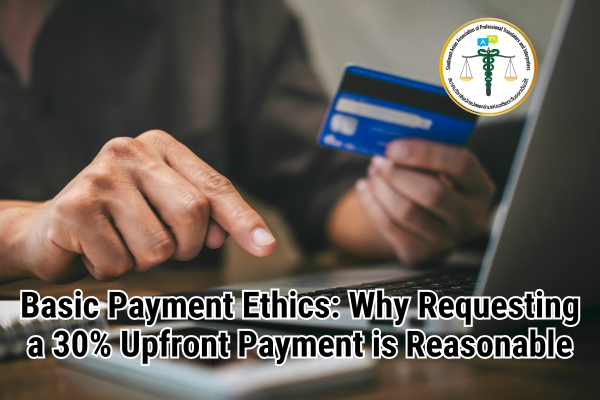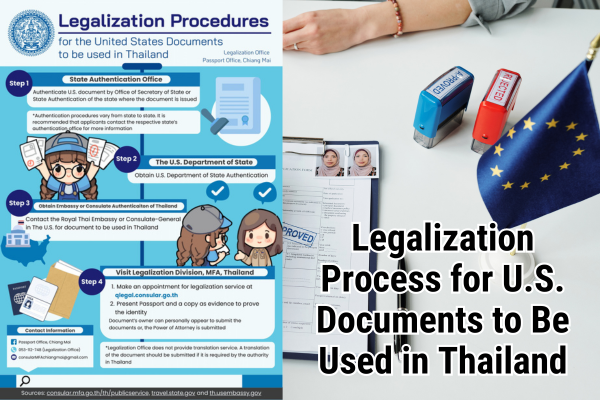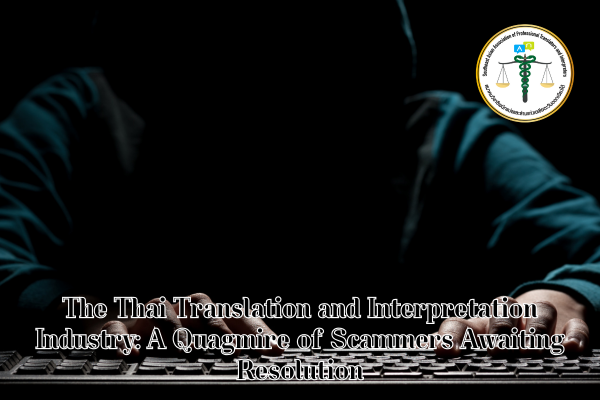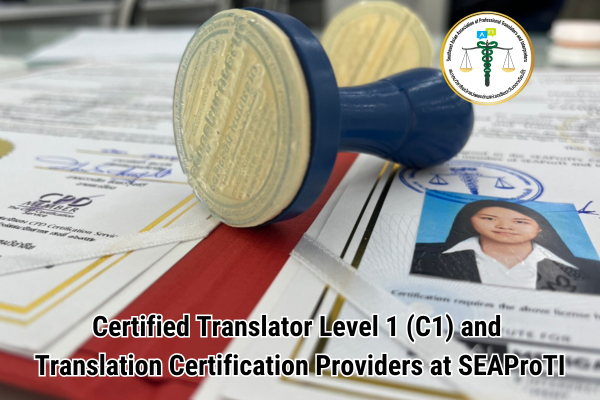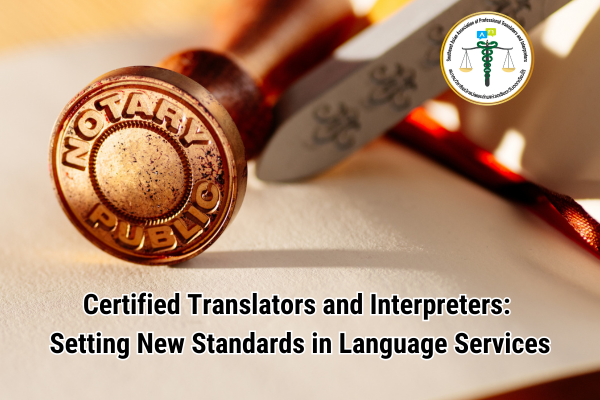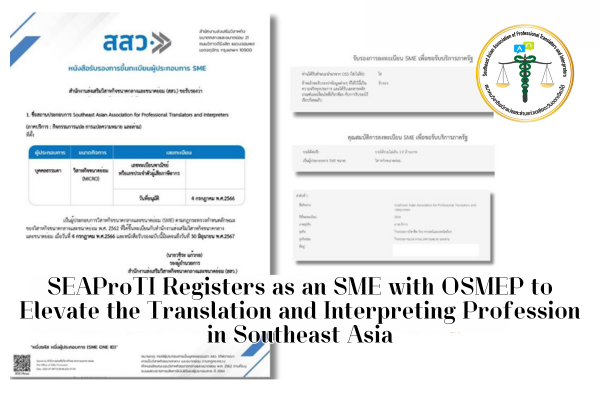Basic Payment Ethics: Why Requesting a 30% Upfront Payment Is Reasonable
12 March 2025, Bangkok – In the world of freelance work or service provision—such as translation, design, or content creation—a common issue arises: Some clients disappear after receiving the deliverables, refusing to pay. This situation causes financial harm to service providers and undermines trust and professionalism in the industry. Requesting a 30% upfront payment has become a widely accepted and fair method to protect providers from scams. This article will analyze the reasons supporting this approach in detail.
1. Mitigating the Risk of Fraud
Freelance work often begins with mutual trust, where providers invest time, skills, and resources to meet client needs. However, this trust is sometimes exploited by clients who take the work and vanish without accountability. A 30% upfront payment reduces this risk by ensuring that providers receive at least partial compensation for their efforts, even if clients change their minds or have dishonest intentions from the start.
For instance, a translator who spends hours working on a complex document may lose both time and opportunities for other projects if a client disappears after delivery. An upfront payment acts as a “safety net,” ensuring that providers are not left bearing the full burden of such losses.
2. Demonstrating Client Commitment
Requesting an upfront payment isn’t just about protecting the provider—it also tests the client’s seriousness. Clients willing to pay in advance demonstrate genuine intent and commitment to the collaboration. Conversely, those who refuse or express dissatisfaction with this condition may signal uncertainty or unclear motives, allowing providers to filter out potentially problematic clients early on.
The 30% rate strikes a reasonable balance: it’s not so high as to burden the client, but it’s sufficient to establish a level of mutual commitment. It fosters a fair starting point for both parties.
3. Ensuring Fairness for Both Sides
A 30% upfront payment doesn’t solely benefit the provider—it distributes risk equitably between both parties. Clients retain the power to assess the quality of the work before paying the remaining 70%, meaning providers remain accountable for delivering as agreed. Clients can negotiate or request revisions if the work falls short, with most of the payment still in their control.
However, providers bear all the risk without any upfront payment, which is unfair given the effort and expertise they invest. This condition creates a balanced framework that both sides can accept.
4. Aligning with Global Practices
Across various industries worldwide, requesting deposits or upfront payments is standard practice. Whether hiring a wedding photographer, engaging a design firm, or ordering custom-made products, a 30-50% upfront payment is widely accepted. It ensures providers have the resources to begin work and reduces the likelihood of clients canceling without compensation.
Adopting this approach is neither novel nor excessive for translators or freelancers in Thailand—it aligns with proven, effective global standards.
Counterarguments and Responses
Some might argue that requesting upfront payment reflects a lack of trust in clients, potentially straining long-term relationships. However, when explained transparently—such as by citing past instances of fraud—most sincere clients understand and accept it. Additionally, contracts or agreements specifying refund conditions (e.g., if work isn’t completed as promised) can reassure clients and address such concerns.
Conclusion
Requesting a 30% upfront payment is not merely a strategy to shield translators or service providers from scams—it’s about building a fair and sustainable system for all involved. It reflects basic payment ethics that respect the provider’s effort and the client’s trust. In a rapidly growing freelance landscape, such safeguards aren’t about greed; they’re about preserving the value and dignity of the work invested.
SEAProTI’s certified translators, translation certification providers, and certified interpreters:
The Southeast Asian Association of Professional Translators and Interpreters (SEAProTI) has officially announced the criteria and qualifications for individuals to register as “Certified Translators,” “Translation Certification Providers,” and “Certified Interpreters” under the association’s regulations. These guidelines are detailed in Sections 9 and 10 of the Royal Thai Government Gazette, issued by the Secretariat of the Cabinet under the Office of the Prime Minister of the Kingdom of Thailand, dated July 25, 2024, Volume 141, Part 66 Ng, Page 100.
To read the full publication, visit: the Royal Thai Government Gazette
จริยธรรมพื้นฐานในการชำระเงิน: เหตุใดการขอชำระเงินล่วงหน้า 30% จึงสมเหตุสมผล
12 มีนาคม 2568, กรุงเทพมหานคร – ในโลกของการทำงานอิสระหรือการให้บริการ เช่น การแปลเอกสาร การออกแบบ หรือการผลิตเนื้อหา ปัญหาที่พบได้บ่อยครั้งคือ การที่ลูกค้าบางรายหายตัวไปหลังจากได้รับงาน โดยปฏิเสธที่จะชำระเงิน สถานการณ์เช่นนี้ไม่เพียงสร้างความเสียหายทางการเงินให้กับผู้ให้บริการ แต่ยังบั่นทอนความไว้วางใจและความเป็นมืออาชีพในวงการด้วย การขอชำระเงินล่วงหน้า 30% จึงกลายเป็นวิธีที่ได้รับการยอมรับว่าเป็นแนวทางที่ยุติธรรมในการปกป้องผู้ให้บริการจากกลโกง และในบทความนี้ เราจะวิเคราะห์เหตุผลที่สนับสนุนแนวทางนี้อย่างละเอียด
1. ป้องกันความเสี่ยงจากการถูกหลอกลวง
การทำงานอิสระมักเริ่มต้นจากความไว้วางใจระหว่างสองฝ่าย โดยที่ผู้ให้บริการลงทุนเวลา ทักษะ และทรัพยากรเพื่อตอบสนองความต้องการของลูกค้า อย่างไรก็ตาม ความไว้วางใจนี้กลับถูกฉวยโอกาสจากลูกค้าบางรายที่รับงานแล้วหนีหาย โดยไม่มีความรับผิดชอบใด ๆ การขอเงินล่วงหน้า 30% ช่วยลดความเสี่ยงนี้ได้ เพราะอย่างน้อยผู้ให้บริการจะได้รับค่าตอบแทนบางส่วนสำหรับความพยายามที่ทุ่มเทไป แม้ว่าลูกค้าจะเปลี่ยนใจหรือมีเจตนาไม่ดีตั้งแต่แรกก็ตาม
ตัวอย่างเช่น นักแปลที่ใช้เวลาหลายชั่วโมงในการแปลเอกสารที่มีความซับซ้อน หากลูกค้าหายไปหลังจากได้รับงาน เขาจะสูญเสียทั้งเวลาและโอกาสในการรับงานอื่น การมีเงินล่วงหน้าเป็นหลักประกันจึงเปรียบเสมือน “ตาข่ายนิรภัย” ที่ช่วยให้ผู้ให้บริการไม่ต้องแบกรับความสูญเสียทั้งหมดเพียงลำพัง
2. แสดงถึงความจริงจังของลูกค้า
การขอชำระเงินล่วงหน้าไม่ใช่แค่การปกป้องผู้ให้บริการเท่านั้น แต่ยังเป็นการทดสอบความตั้งใจของลูกค้าด้วย ผู้ที่ยินดีจ่ายเงินล่วงหน้ามักแสดงถึงความจริงจังและความมุ่งมั่นในการร่วมงาน ในทางกลับกัน ลูกค้าที่ปฏิเสธหรือแสดงความไม่พอใจต่อข้อเสนอนี้ อาจบ่งบอกถึงความไม่แน่นอนหรือเจตนาที่ไม่ชัดเจน ซึ่งช่วยให้ผู้ให้บริการสามารถกรองลูกค้าที่มีแนวโน้มจะสร้างปัญหาได้ตั้งแต่ต้น
เปอร์เซ็นต์ 30% ถือเป็นจำนวนที่สมเหตุสมผล เพราะไม่สูงเกินไปจนเป็นภาระสำหรับลูกค้า แต่ก็เพียงพอที่จะแสดงถึงความผูกพันในระดับหนึ่งจากทั้งสองฝ่าย เป็นการสร้างสมดุลระหว่างความไว้วางใจและการป้องกันความเสี่ยง
3. สร้างความเป็นธรรมให้ทั้งสองฝ่าย
การชำระเงินล่วงหน้า 30% ไม่ได้หมายความว่าผู้ให้บริการจะได้เปรียบฝ่ายเดียว ในความเป็นจริง มันเป็นการกระจายความเสี่ยงระหว่างทั้งลูกค้าและผู้ให้บริการ ลูกค้ายังคงมีอำนาจในการตรวจสอบคุณภาพงานก่อนชำระเงินส่วนที่เหลือ 70% ซึ่งหมายความว่าผู้ให้บริการยังต้องรับผิดชอบในการส่งมอบงานที่มีมาตรฐานตามที่ตกลงกันไว้ หากงานไม่เป็นไปตามคาด ลูกค้าสามารถเจรจาหรือขอแก้ไขได้ โดยที่เงินส่วนใหญ่ยังอยู่ในมือของพวกเขา
ในทางกลับกัน หากไม่มีการชำระเงินล่วงหน้าเลย ผู้ให้บริการจะเป็นฝ่ายแบกรับความเสี่ยงทั้งหมด ซึ่งไม่ยุติธรรมต่อความพยายามและทักษะที่ลงทุนไป การกำหนดเงื่อนไขนี้จึงเป็นการสร้างความสมดุลที่ทั้งสองฝ่ายยอมรับได้
4. สอดคล้องกับแนวปฏิบัติสากล
ในหลายอุตสาหกรรมทั่วโลก การขอเงินมัดจำหรือชำระเงินล่วงหน้าเป็นเรื่องปกติ เช่น การจ้างช่างภาพงานแต่งงาน การว่าจ้างบริษัทออกแบบ หรือแม้แต่การสั่งซื้อสินค้าที่ต้องผลิตตามความต้องการ การชำระเงินล่วงหน้า 30-50% เป็นมาตรฐานที่ยอมรับกันอย่างกว้างขวาง เพราะช่วยให้ผู้ให้บริการมีทรัพยากรเพียงพอในการเริ่มงาน และลดโอกาสที่ลูกค้าจะยกเลิกโดยไม่มีการชดเชย
สำหรับนักแปลหรือฟรีแลนซ์ในประเทศไทย การนำแนวทางนี้มาใช้จึงไม่ใช่เรื่องแปลกใหม่หรือเกินเลย แต่เป็นการปรับตัวให้สอดคล้องกับหลักปฏิบัติที่พิสูจน์แล้วว่ามีประสิทธิภาพ
ข้อโต้แย้งและการตอบสนอง
บางคนอาจมองว่าการขอเงินล่วงหน้าเป็นการขาดความไว้วางใจต่อลูกค้า ซึ่งอาจส่งผลต่อความสัมพันธ์ในระยะยาว อย่างไรก็ตาม หากอธิบายเหตุผลอย่างชัดเจนและโปร่งใส—เช่น การป้องกันการถูกหลอกลวงที่เคยเกิดขึ้น—ลูกค้าส่วนใหญ่ที่จริงใจมักเข้าใจและยอมรับได้ ยิ่งไปกว่านั้น สัญญาหรือข้อตกลงที่ระบุเงื่อนไขการคืนเงิน (หากงานไม่สำเร็จตามกำหนด) สามารถเพิ่มความมั่นใจให้ลูกค้า และลดข้อกังวลในประเด็นนี้ได้
บทสรุป
การขอชำระเงินล่วงหน้า 30% ไม่ใช่แค่กลยุทธ์เพื่อปกป้องนักแปลหรือผู้ให้บริการจากกลโกงเท่านั้น แต่ยังเป็นการสร้างระบบที่เป็นธรรมและยั่งยืนสำหรับทุกฝ่ายที่เกี่ยวข้อง มันสะท้อนถึงจริยธรรมพื้นฐานในการชำระเงินที่เคารพทั้งความพยายามของผู้ให้บริการและความไว้วางใจของลูกค้า ในโลกที่การทำงานอิสระเติบโตอย่างรวดเร็ว การมีหลักประกันเช่นนี้ไม่ใช่เรื่องของความโลภ แต่เป็นการรักษาคุณค่าและศักดิ์ศรีของงานที่ทุ่มเทลงไป
เกี่ยวกับนักแปลรับรอง ผู้รับรองการแปล และล่ามรับรองของสมาคมวิชาชีพนักแปลและล่ามแห่งเอเชียตะวันออกเฉียงใต้
สมาคมวิชาชีพนักแปลและล่ามแห่งเอเชียตะวันออกเฉียงใต้ (SEAProTI) ได้ประกาศหลักเกณฑ์และคุณสมบัติผู้ที่ขึ้นทะเบียนเป็น “นักแปลรับรอง (Certified Translators) และผู้รับรองการแปล (Translation Certification Providers) และล่ามรับรอง (Certified Interpreters)” ของสมาคม หมวดที่ 9 และหมวดที่ 10 ในราชกิจจานุเบกษา ของสำนักเลขาธิการคณะรัฐมนตรี ในสำนักนายกรัฐมนตรี แห่งราชอาณาจักรไทย ลงวันที่ 25 ก.ค. 2567 เล่มที่ 141 ตอนที่ 66 ง หน้า 100 อ่านฉบับเต็มได้ที่: นักแปลรับรอง ผู้รับรองการแปล และล่ามรับรอง


